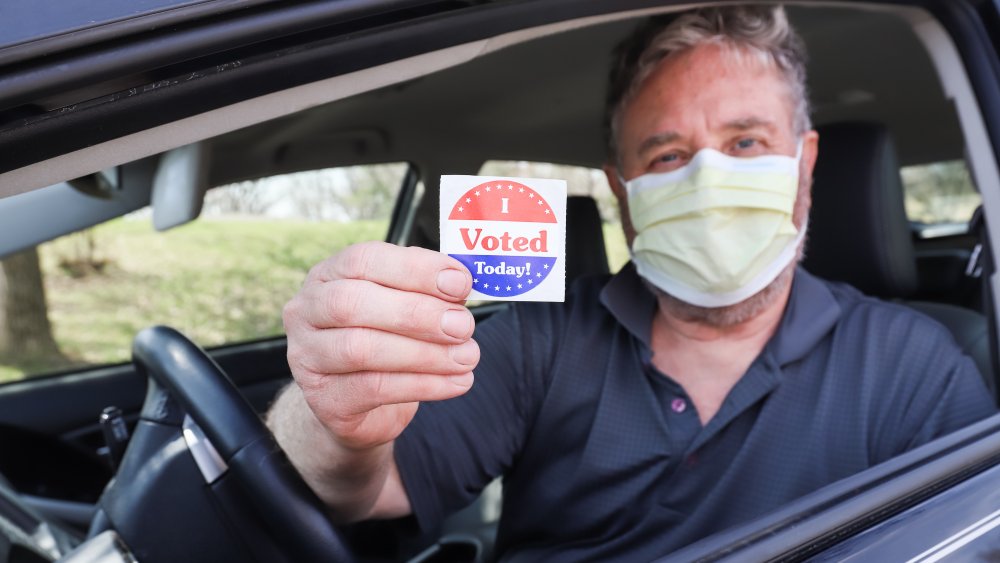The Important Reason You Need To Vote Even If You Don't Live In A Swing State
Florida, Michigan, Ohio, Arizona, Pennsylvania, and North Carolina — these states wouldn't seem to have much in common, different geography, different weather, different ways of referring to carbonated beverages (aka "soda," or "pop," or "Coke"). Except for one key thing, of course, as everyone with their eye on the 2020 election is aware: They all have nearly equal numbers of voters who support each presidential candidate. So, once we know whether these swing states turn red or blue on Election Day next Tuesday, we should be pretty clear on whether President Donald Trump has scored a second term, or if former Vice President Joe Biden will be kicking him out of the White House in January (per The Washington Post).
But what if you don't live in one of these swing states? Does it even matter whether you cast a vote? In fact, it does. "Your vote is not wasted if you are a San Francisco Republican or a Wichita Democrat," argued Nancy Gibbs in Time. "Even the reddest and bluest states can swerve; just ask Not-a-Senator Roy Moore, after crimson Alabama elected a Democrat, or Charlie Baker, the popular Republican governor of the socialist republic of Massachusetts." Beyond that, voting benefits you, personally, in ways that go beyond the outcome of the top of the ticket races.
Voters have more local power than non-voters
Since voter turnout is low in non-swing states, the few people who do show up end up having their choice among the "down-ballot" candidates — from the U.S. Senate and Congress and state representatives, to mayors, judges, and members of the school board. In fact, a study by Portland State University found that less than 15 percent of voters determined who was elected to local positions (per National Geographic). And in some ways, because he or she determines what life is like in your neighborhood, the mayor is more important to your everyday quality of life than the president, noted The Hill. That's because laws need to pass through your state's senators and representatives before the governor can make a decision on whether to approve it or not, the publication added.
One more, admittedly self-serving, reason why you should vote, even if the presidential outcome is a foregone conclusion for your state: Politicians are aware of who among their constituents votes, and that influences whose interests they focus on once they're in office. "Basically, if you don't show up to vote, as far as the politicians are concerned, you don't exist," a political science student pointed out on Quora.

